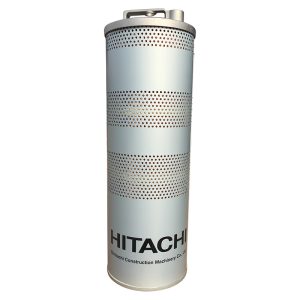Introduction
When it comes to maintaining machinery and equipment, oil filters play a crucial role in preserving the performance and longevity of various components. However, it is important to understand that not all filters are created equal. In this comprehensive guide, we will explore the key differences between hydraulic oil filters and regular oil filters. By understanding these distinctions, you can make informed decisions about which type of filter is most suitable for your specific needs.
Section 1: The Role of Oil Filters
Oil filters are responsible for removing contaminants and impurities from the lubricating oil within machinery and engines. They prevent harmful particles, such as dirt, metal shavings, and sludge, from circulating throughout the system. By keeping the oil clean and free from debris, oil filters contribute to optimal performance, reduce wear and tear, and extend the lifespan of various components.
Section 2: Regular Oil Filters
Regular oil filters, as the name suggests, are primarily designed for use in internal combustion engines found in vehicles, including cars, motorcycles, and trucks. These filters are typically made with cellulose or synthetic media designed to capture impurities in the oil, ensuring clean lubrication for the engine’s moving parts. Regular oil filters are characterized by their ability to remove contaminants such as dust, metal fragments, and combustion by-products commonly generated in gasoline and diesel engines.
Section 3: Hydraulic Oil Filters
Hydraulic oil filters are specifically designed for use in hydraulic systems that power heavy machinery and equipment, such as construction machinery, industrial machinery, and agricultural equipment. Unlike regular oil filters, hydraulic oil filters perform multiple functions beyond removing contaminants.
a) Contaminant Removal: Similar to regular oil filters, hydraulic oil filters eliminate particles and impurities from the hydraulic fluid. However, they are engineered to capture smaller particles and maintain high filtration efficiency to protect sensitive hydraulic components.
b) Fluid Conditioning: Hydraulic oil filters also possess the capability to condition the hydraulic fluid by removing moisture, air bubbles, and other contaminants that can compromise the system’s performance and longevity.
c) Pressure Regulation: Many hydraulic oil filters are equipped with built-in pressure relief valves. These valves help maintain optimal pressure levels within the hydraulic system by diverting excess pressure back into the reservoir, ensuring safe operation and preventing damage to the equipment.
Section 4: Choosing the Right Filter for Your Needs
Selecting the appropriate oil filter for your machinery requires careful consideration of the specific requirements and operating conditions. Here are some factors to keep in mind:
a) Equipment Type: Determine whether your machinery utilizes an internal combustion engine or a hydraulic system. Regular oil filters are suitable for engines, while hydraulic oil filters are designed for hydraulic systems.
b) Filtration Efficiency: Consider the level of filtration required based on the equipment and its operating environment. Hydraulic systems often demand higher filtration efficiency due to smaller tolerances and sensitive components.
c) Compatibility: Ensure the filter you select is compatible with the type of oil or hydraulic fluid used in your machinery. Different filters are engineered to handle specific fluid viscosities and compositions.
d) Maintenance Schedule: Understand the recommended maintenance intervals for filter replacement and factor this into your decision-making process.
Conclusion
While both regular oil filters and hydraulic oil filters serve the purpose of maintaining clean lubrication and protecting equipment, the distinction lies in their specific applications and functionalities. Regular oil filters cater to internal combustion engines, while hydraulic oil filters offer additional features such as fluid conditioning and pressure regulation for hydraulic systems. By selecting the right filter for your needs, you can ensure the longevity, reliability, and optimal performance of your machinery and equipment.



